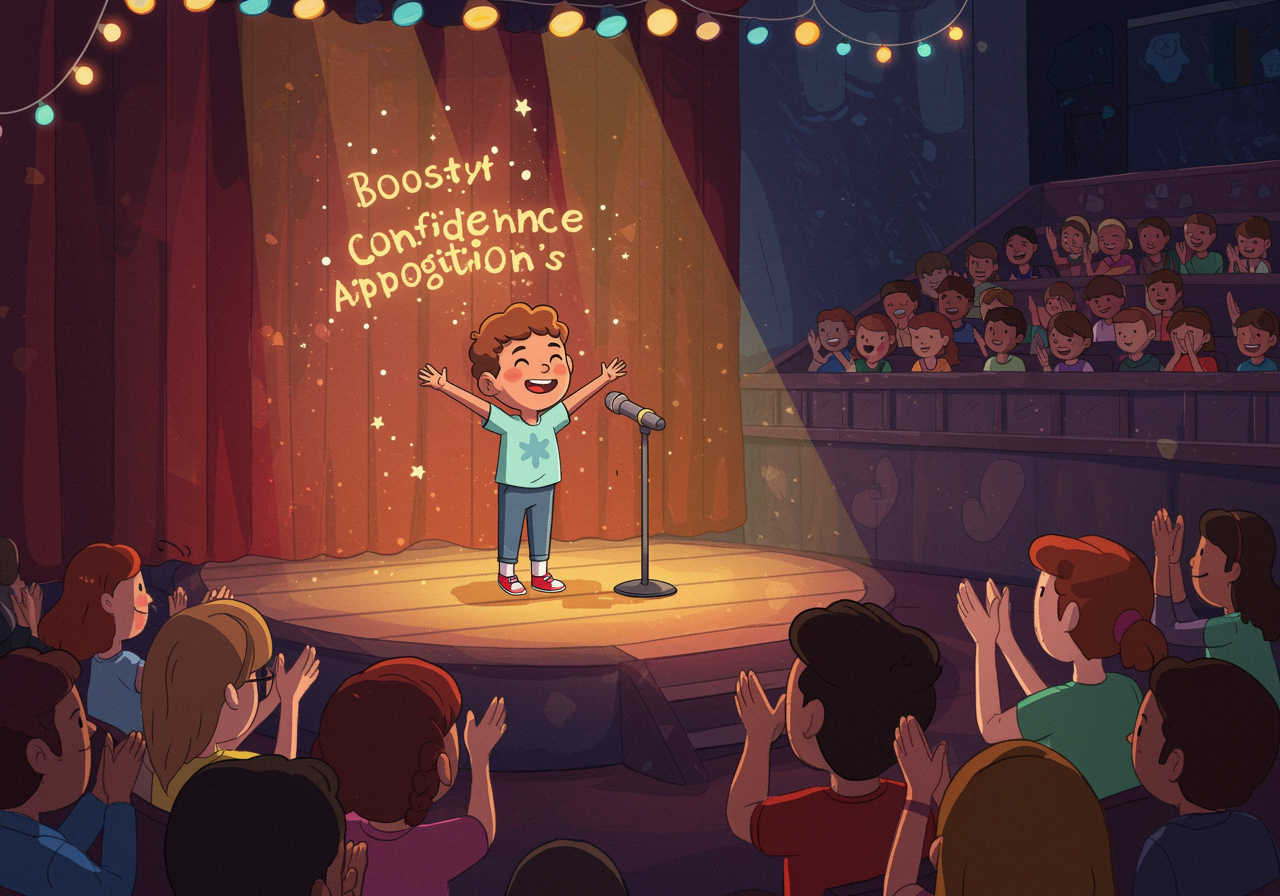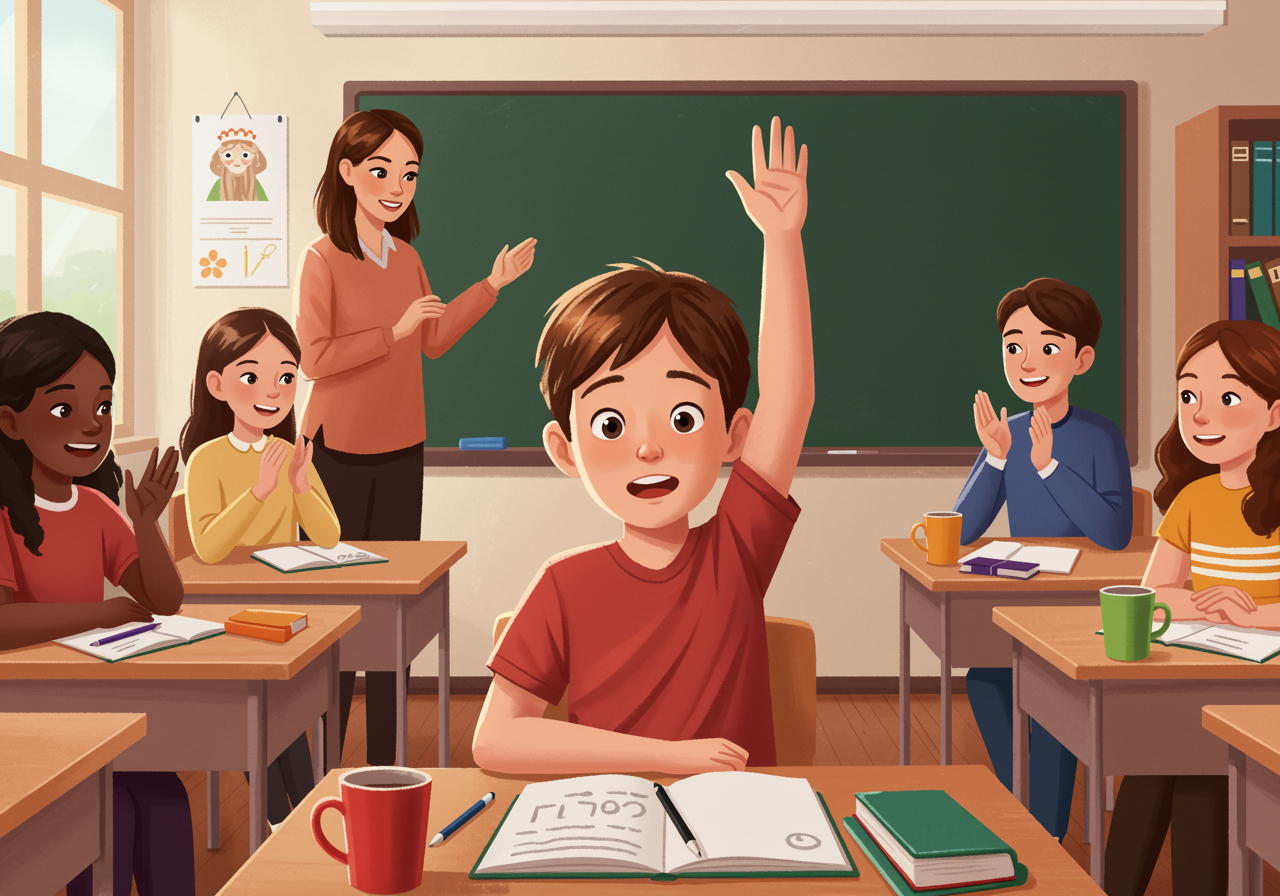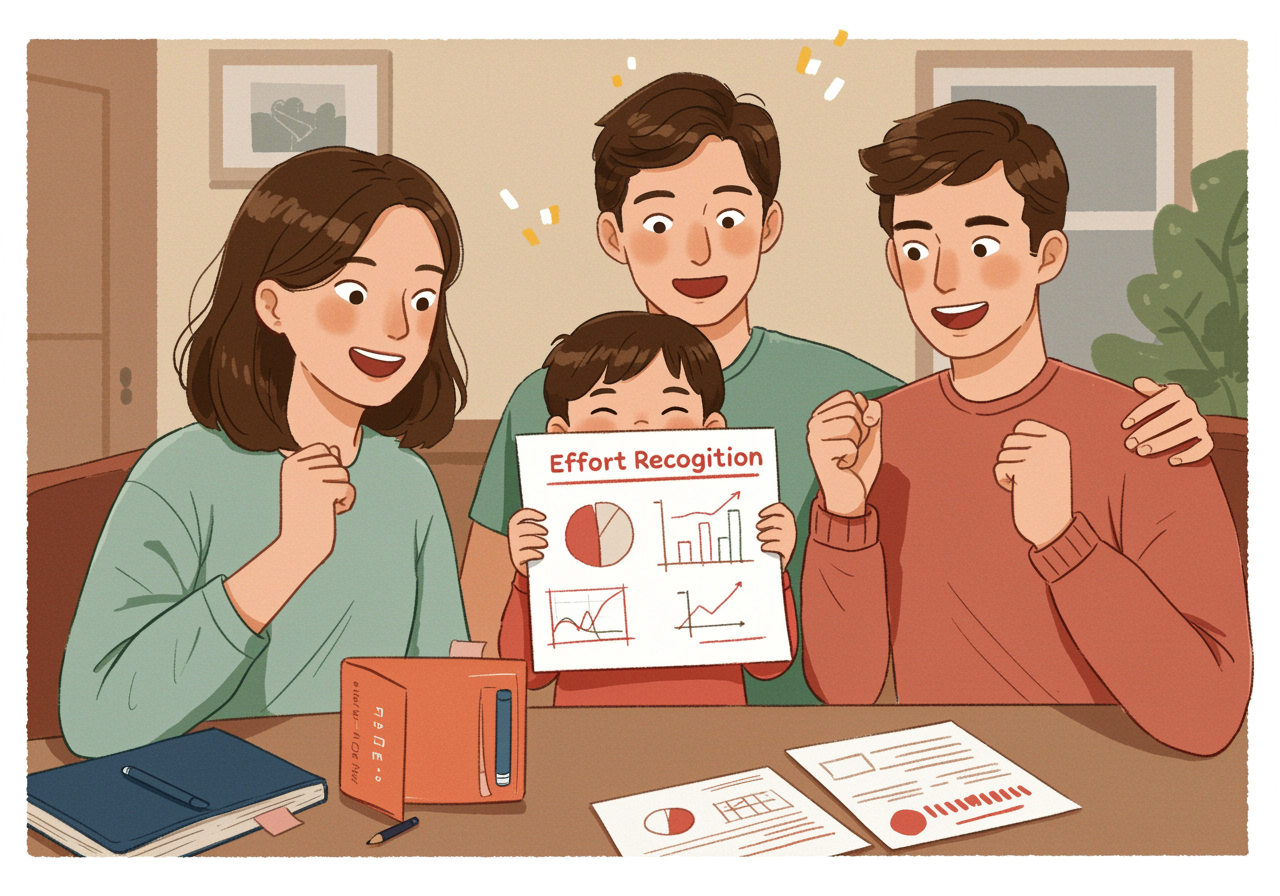The Magic Moment: How One Cheer Can Change Everything
When the crowd goes wild, your brain gets rewired for greatness
Discover how a single moment of recognition can spark a confidence explosion that transforms how kids perform in sports, school, and life.
Overview
Have you ever watched your child light up when they get applause? That magical moment isn't just feel-good fluff – it's actually rewiring their brain for success! When kids experience positive recognition, especially in front of others, it creates a powerful confidence boost that can improve their performance for weeks, months, or even years. Understanding this 'confidence chain reaction' helps parents know exactly how to encourage their kids in ways that stick.

Understand in 30 Seconds
Get up to speed quickly
- Your Brain on Applause: When someone cheers for you, your brain releases feel-good chemicals called dopamine that make you want to try harder next time.
- Confidence = Better Performance: Kids who feel confident take more risks, practice more, and bounce back from mistakes faster than those who doubt themselves.
- One Moment, Big Impact: A single positive experience can create a 'success loop' where good feelings lead to better effort, which leads to better results.
- It's Not Just Sports: This confidence boost works the same way in music, school presentations, art shows, or any time kids put themselves out there.
Real Life Scenario
Situations you can relate to
Imagine your friend Alex is usually shy about speaking up in class. One day, they finally raise their hand to answer a tough math question. Not only do they get it right, but the teacher says 'Excellent thinking, Alex!' and a few classmates nod and smile. That night, Alex tells their family about it three times! The next week, Alex raises their hand again… and again. What started as one positive moment became a pattern. Think about it: when was the last time you felt really proud of something you did? How did that feeling change how you approached similar situations afterward?

Role Play
Spark a conversation with “what if” scenarios
What if you just nailed a difficult guitar solo and everyone started clapping?
- Role play: Have your child 'perform' something they're learning (even if it's just explaining their homework) while you give them an enthusiastic audience reaction. Then talk about how it felt.
What if you were the teammate giving someone else their first standing ovation?
- Role play: Practice being an encouraging teammate or friend. Take turns being the supporter and the performer, focusing on how good it feels to lift someone else up.
What if the big moment didn't go perfectly, but people still cheered for your effort?
- Role play: Act out a scenario where someone tries hard but makes a mistake, then practice giving encouragement that focuses on effort rather than just results.
FAQs
Frequently asked questions people want to know
What if my child becomes too dependent on other people's approval?
Help them recognize their own improvements and efforts, not just external praise. Ask questions like 'How did that feel to you?' and 'What are you most proud of about that?'
Does this work if the praise isn't genuine?
Kids can usually tell when praise is fake. Focus on specific things they did well or improvements they made, rather than generic compliments.
What if my child rarely gets these 'magic moments' in their activities?
Create smaller recognition moments at home! Celebrate effort, improvement, and persistence. You can be their biggest fan while they build confidence.
Examples in the Wild
See how this works day to day
- Stephen Curry credits a single three-pointer he made in high school, where the crowd went crazy, as the moment he knew he could be great at basketball (ESPN Sports Psychology Research)
- Studies show that students who receive one meaningful recognition in class are 40% more likely to participate again within the next week (Journal of Educational Psychology)
- Simone Biles often talks about how her first standing ovation at age 8 made her realize gymnastics could be her 'thing' (Olympic Training Center Research)
- Research on youth orchestras found that musicians who experienced audience appreciation were more likely to practice regularly and improve faster (Music Education Research Council)
In Summary
What you should know before you start
- Positive recognition creates a chemical reaction in the brain that makes kids want to try harder
- One encouraging moment can start a cycle of increased confidence and better performance
- This works in any activity where kids put themselves on the line – sports, arts, academics, or social situations
- Parents can create these 'magic moments' at home by celebrating effort and specific improvements
Pro-tip for Parents
You got this!
When your child experiences a confidence-boosting moment, help them 'bottle' that feeling by asking them to describe exactly how it felt and what they were thinking. This helps them access those positive feelings again when they need confidence. Avoid immediately jumping to 'now you should do this more often' – let them savor the moment first, then gently encourage them to build on it.

Keep an Eye Out For
Find these examples in everyday life
- Sports events where you see athletes getting emotional about crowd support – great conversation starters about confidence
- School performances, talent shows, or presentations where you can observe how recognition affects different kids
- Your own child's reactions to positive feedback in any setting – these are teachable moments to discuss how good feelings can fuel future success
Explore Beyond
Look up these related research topics
- How does stress affect performance and what can kids do about it?
- Why do some people seem naturally confident while others struggle with self-doubt?
- How can families create a culture of encouragement that builds everyone's confidence?